#ImportTariffs
U.S. Asks Mexico to Investigate Stellantis' Labor Practices
The United States has requested that Mexico investigate worker rights violations that were alleged to have taken place at one of the parts factories owned by Stellantis. Officials are curious about what’s been happening at Teksid Hierro de Mexico, a facility located in the border state of Coahuila that’s responsible for manufacturing iron casings, in regard to unionization. According to U.S. officials, this is the fourth such complaint under the United States-Mexico-Canada Agreement (USMCA).
Having supplanted the North American Free Trade Agreement (NAFTA) signed into law by the Clinton administration in 1993, USMCA sought to rebalance trade laws the Trump administration believed had disadvantaged the United States. However, it also sought to advance worker protections in Mexico and give employees an easier pathway toward unionization.
United States Won't Raise Tariffs on Japanese Vehicles, Report Suggests
With Japan and the United States spending the better part of the summer discussing trade relations, there were minor fears that the island nation would become subject to new tariffs. Fortunately, most of the reporting on the matter showed negotiations to be productive, with President Donald Trump and Prime Minister Shinzo Abe perpetually optimistic about the two countries’ relationship.
Last month at a Group of Seven Summit, the pair even claimed to be on the verge of signing a new agreement. According to Reuters, that will come without new fees on Japanese-made automobiles.
As Mexico Beefs Up Its Border, Tariffs Still Lurk on Monday
Friday brought a third day of talks aimed at preventing a U.S.-imposed tariff on Mexican goods. Late last month, the White House warned that a 5 percent import levy would hit Mexican goods on June 10th, rising to 10 percent by July and 25 percent by October, if Mexico doesn’t stem the flow of illegal migrants travelling through its country to reach the U.S.
Going into the weekend, the threat still stands. There are, however, signs of progress both from the U.S. and its southern neighbor.
Auto Tariffs Off the Table for 180 Days, Trump Claims
U.S. President Donald Trump pushed the threat of tariffs on imported vehicles to the background on Friday, announcing a 180-day pause as the country negotiates trade agreements with Japan and the European Union.
The delay comes a day ahead of a Saturday deadline imposed by the Commerce Department. In February, the department delivered the findings of an investigation on whether auto imports represent a national security threat to the United States. The report, not seen by the public, issued recommendations to the White House.
Trade War Watch: Truce Ends, Tariffs Up, Talks Resume, Trump Tweets
Following an announcement that trade discussions with China had effectively broken down, President Donald Trump increased tariffs on $200 billion in goods from the country on Friday. The White House also issued an ultimatum, saying Beijing had about a month to reach an agreement before the U.S. enacts another 25-percent duty on $325 billion previously unaffected Chinese imports.
White the trade war has been in full swing for most of Trump’s time in office, the White House had indicated that discussions with China were progressing at the start of May. That changed after the People’s Republic returned a modified trade agreement that removed much of the legal language that would have made it binding while reneging on other aspects U.S. negotiators already assumed were settled. President Trump cited the backtracking as the primary reason for imposing a new round of tariffs.
Fortunately, the U.S. International Trade Commission said the tariff hike would only affect $2.3 billion worth of automotive goods — ranking them 10th on the list overall.
Industry Expects White House to Postpone Auto Tariff Decision 180 Days
Even though the United States plans to impose heftier trade duties on China tomorrow, and vice versa, automakers remain confident that the White House will decide to delay the hiking of other automotive tariffs on national security grounds.
The Commerce Department submitted its Section 232 national security report in February, leaving President Trump until May 18 to act. But manufacturers believe the preferred move will be to postpone the final decision another six months.
Backtrack Blowback: U.S. Makes It Official, Imposes Steep Tariffs on $200 Billion of Chinese Goods
The United States made good on a threat to impose higher tariffs on a new raft of Chinese goods Wednesday, days after the the People’s Republic reportedly backtracked on nearly every element of a draft trade deal hammered out by the two countries.
The 25 percent tariff officially hits $200 billion worth of Chinese goods on Friday, according to a Federal Register notice. As we told you yesterday, U.S. trade representatives reportedly took issue with China’s reluctance to change its laws to protect the intellectual property rights of U.S. companies.
Trade War Watch: New Tariffs Coming Down the Pipe After China Pulls U-turn
The United States could impose a 25 percent import tariff on $200 billion worth of Chinese goods by the end of this week — the result of threats issued by President Donald Trump following a reported about-face on the part of Chinese officials negotiating a new trade deal with the U.S.
At the core of the dispute? Intellectual property rights, sources claim.
Trade War Watch: Were the Auto Tariffs Ever Supposed to Be More Than a Threat?
The U.S. Commerce Department has submitted draft recommendations to the White House on its investigation into whether it’s prudent to impose tariffs of up to 25 percent on imported automobiles and parts, based on the premise that they’re a threat to national security. The possibility has the industry in a tizzy, with both foreign and domestic brands lobbying against it.
Truth be told, we half assumed the entire concept was a ruse to bring other nations to the bargaining table with something to lose — a scenario where the United States could be viewed as a favorable alternative to tariff-crazy China. However, China has begun opening its market to foreign automakers while also placing a massive 40 percent duty on American autos, leaving the U.S. at a disadvantage. Now it looks as if the Trump administration may go through with everything.
Trade War Watch: Turkey Readies 120 Percent Tariff On American Cars
In Joseph Conrad’s Heart of Darkness, Kurtz has an epiphany regarding himself, imperial conquest, and war as a whole, crying “The horror! The horror!” in his last moments of life. His experiences took him from a well-meaning businessman to a megalomaniacal warlord, only able to realize the full scope of his own corruption upon his death. Trade wars contain significantly less drama than real ones, but there is never a shortage of egotistical individuals falling down a rabbit hole of madness.
This week, a decree signed by Turkish President Recep Tayyip Erdogan raised the tariff on U.S. cars to 120 percent. While this doesn’t qualify as truly horrific, it certainly could head in that direction if things continue to escalate.
BMW Raising Prices on American-made SUVs in China, Willing to Absorb Some Tariff Costs
BMW says it will hike the price of two utility vehicles in China to cope with the additional cost of tariffs on U.S. car imports in the world’s biggest vehicle market. The models are the X5 and X6, both manufactured in South Carolina.
This news comes after China increased import duties on all automobiles from the United States to 40 percent earlier this month. China had previously said it would reduce its already high vehicle tariffs across the board as a sign of good faith — which it did, while simultaneously slapping new punitive tariffs on the U.S. Meanwhile, President Donald Trump has postponed prospective automotive tariffs while negotiations take place with Europe.
If you needed proof that a trade war is on and were wondering how automakers would handle it, look no further. BMW says it will have to raise the models’ Chinese MSRP by 4 percent to 7 percent. It’s a relatively modest increase considering how utterly massive the new import fees are, which indicates a willingness from the automaker to absorb some of the associated costs just to remain in the market. It’s something BMW is not alone in doing, and there could be a valuable lesson to be learned from that.
An Exhaustive List of Everything Automakers Want You to Know About Trump's Import Investigation (Hint: Higher Prices, Fewer Jobs)
It’s no secret that the automotive industry has come out universally against the Trump administration’s proposal to increase import tariffs. Numerous manufacturers weighed in independently on the issue as trade groups rise in opposition to the U.S. Commerce Department’s national security investigation.
The industry’s claim that imported vehicles don’t pose a risk to the wellbeing of the United States seems to have fallen on deaf ears. Threats that the prospective import duties on parts could result in fewer, more-expensive automobiles being produced domestically have been heard — and rebuked — by President Trump.
“What’s really going to happen is there’s going to be no tax,” he told Fox News in a weekend broadcast. “You know why? They’re going to build their cars in America. They’re going to make them here.”
However, automakers, parts suppliers, and even local governments have submitted comments to the Commerce Department ahead of the hearings scheduled for July 19th — and they’re all incredibly negative.
Love Tariffs? Prepare to Cough up an Extra $1,800 for a Camry, Toyota Warns
Toyota’s not going silently into a potential future where tariffs are as prevalent as man buns and tattoos in a brewpub. In its submission to the U.S. Commerce Department, Toyota wants the government to know it’s a standout business, and that a tariff on imported automobiles and auto parts would backfire.
Even for vehicles built in the U.S., American buyers would face a steep price hike, Toyota claims. Care to fork over an additional $1,800 for a Kentucky-built Camry? Meanwhile, a Canadian supplier association representative warns of “carmageddon” if the tariffs come to pass.
UPDATED: Steel Tariffs Are Coming, Canada and Mexico May See Exemptions
There was quite the backlash against President Trump’s plan to impose sweeping steel and aluminum tariffs on Wednesday. However, the White House pressed onward to formalize the measures on Thursday afternoon with assurances from the Commander-in-chief that they will be imposed “in a very loving way.”
Apparently, Canada and Mexico won’t be subjected to the 25-percent tax on steel imports and a 10-percent tariff on inbound aluminum. But the exception may only be temporary and the overall feeling on the tariff proposals are mixed, to say the least. Considering that the automotive industry accounts for a significant portion of the nation’s steel and aluminum imports, Rust Belt states are worried. Michigan, Ohio, Indiana and Pennsylvania receive around 20 percent of the steel and aluminum sent to the United States. Each of the states went red in the 2015 election after Trump said he would protect manufacturing jobs. But Trump claims that’s exactly what he’s doing.
The GAC Effect: Imported Chinese Automobiles Face Fierce Criticism From U.S. Politicians
At this very moment, Chinese-based automaker GAC has a massive booth in the very center of the North American International Auto Show in Detroit. The company has expressed its intent to start importing its vehicles into the United States in 2019. However, 536 miles away (by car), Washington is bemoaning Chinese trade practices — a topic which might be extremely relevant for Guangzhou Automobile Group in the coming years.
On Wednesday, Democratic U.S. Senator Chuck Schumer and President Donald Trump separately criticized China’s trade policy. For automobiles, this translates into Chinese-built cars incurring a maximum 2.5 percent import tariff upon entering the United States, while U.S.-built cars sent East are hit with an average 25 percent tax.



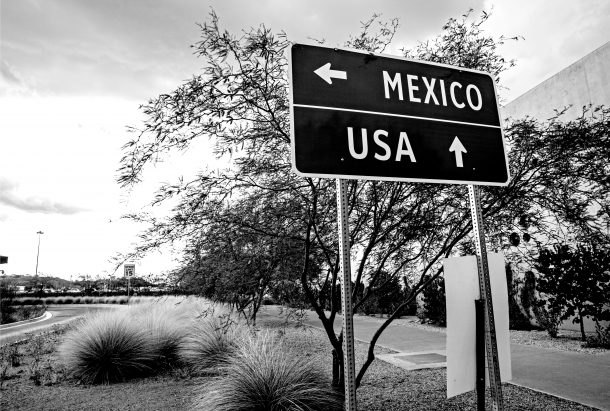
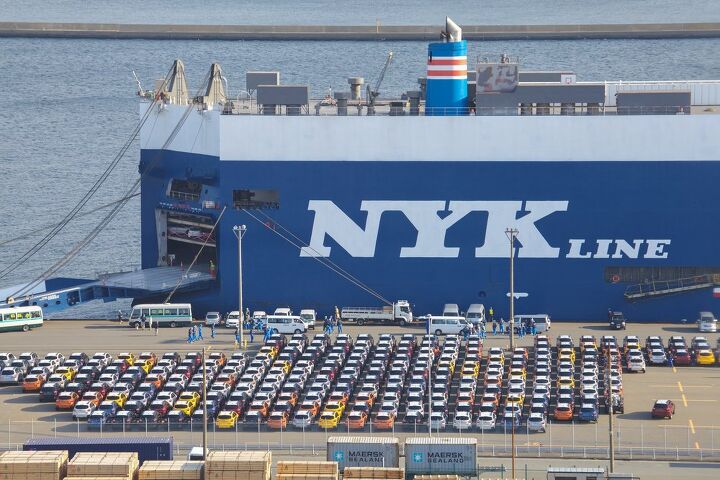







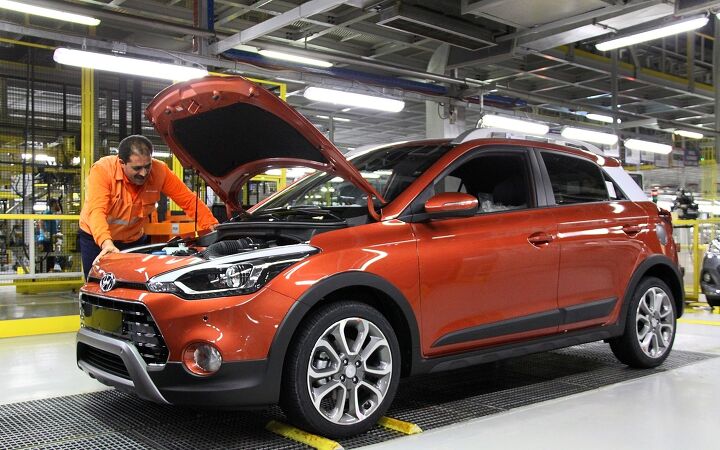

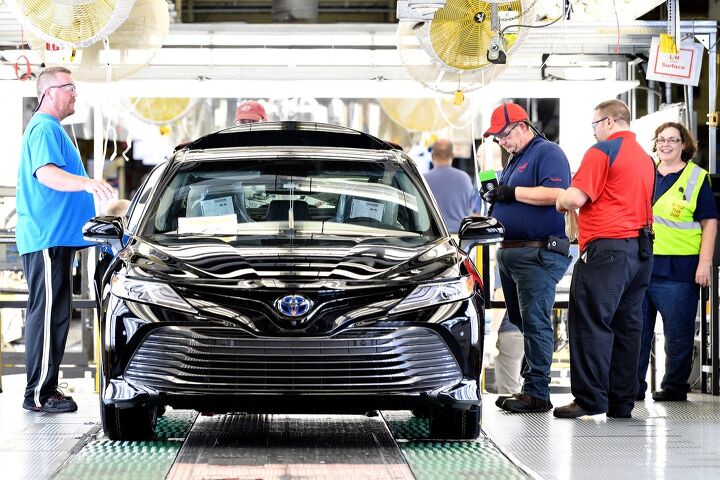

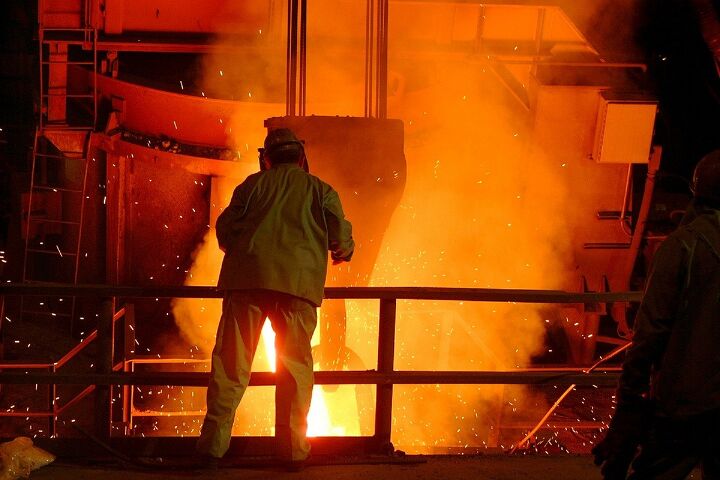













Recent Comments